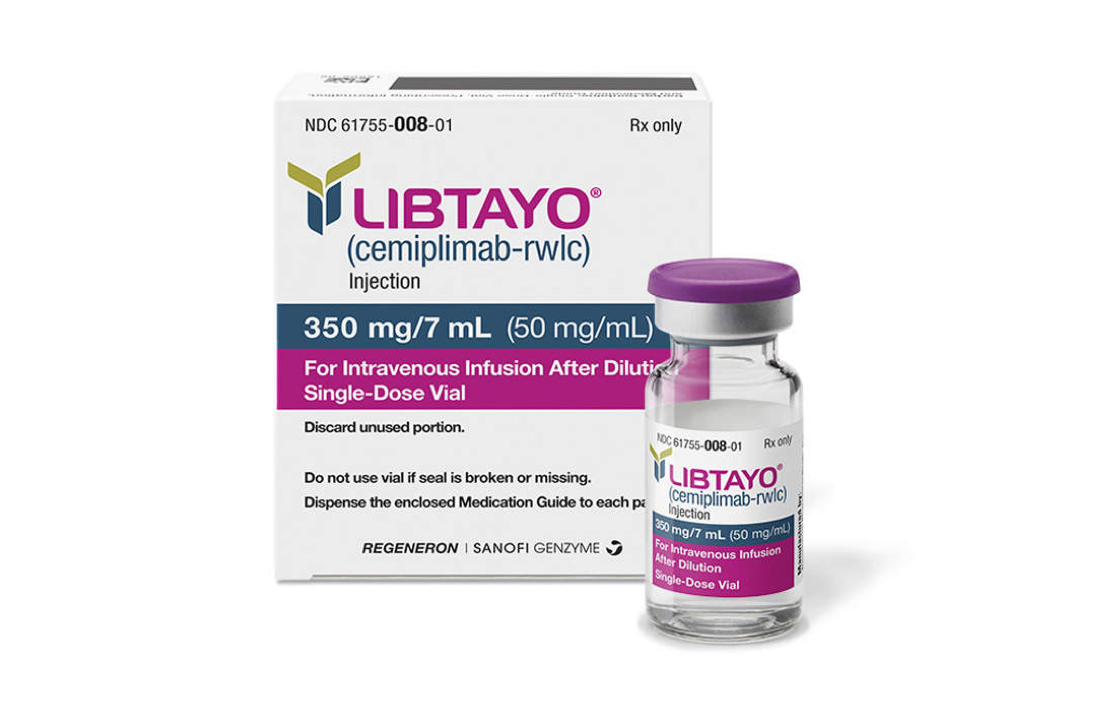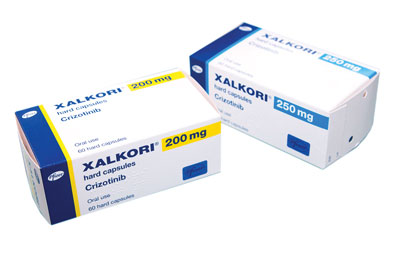Libtayo (cemiplimab) vs Xalkori (crizotinib)
Libtayo (cemiplimab) vs Xalkori (crizotinib)
Libtayo (cemiplimab) is an immune checkpoint inhibitor specifically targeting the PD-1 receptor, used primarily for the treatment of certain types of skin cancers, such as advanced cutaneous squamous cell carcinoma, and more recently, non-small cell lung cancer (NSCLC) with high PD-L1 expression. Xalkori (crizotinib), on the other hand, is a tyrosine kinase inhibitor that targets ALK and ROS1 receptors, indicated for the treatment of NSCLC that is positive for ALK or ROS1 genetic mutations. The choice between Libtayo and Xalkori would depend on the specific genetic markers and molecular profile of the patient's cancer, as well as the cancer type, with Libtayo being an option for patients with high PD-L1 expression and Xalkori being suitable for those with ALK or ROS1 mutations.
Difference between Libtayo and Xalkori
| Metric | Libtayo (cemiplimab) | Xalkori (crizotinib) |
|---|---|---|
| Generic name | Cemiplimab | Crizotinib |
| Indications | Cutaneous squamous cell carcinoma, basal cell carcinoma, non-small cell lung cancer | Non-small cell lung cancer, ROS1-positive advanced NSCLC, ALK-positive metastatic NSCLC |
| Mechanism of action | Programmed death receptor-1 (PD-1) blocking antibody | ALK and ROS1 tyrosine kinase inhibitor |
| Brand names | Libtayo | Xalkori |
| Administrative route | Intravenous infusion | Oral |
| Side effects | Fatigue, rash, diarrhea, musculoskeletal pain | Visual disorders, gastrointestinal effects, edema, elevated transaminases |
| Contraindications | Severe hypersensitivity to cemiplimab or its excipients | Hepatic impairment, concomitant use with strong CYP3A inhibitors or inducers |
| Drug class | Monoclonal antibody, immune checkpoint inhibitor | Small molecule kinase inhibitor |
| Manufacturer | Regeneron Pharmaceuticals, Inc. and Sanofi | Pfizer Inc. |
Efficacy
Libtayo (Cemiplimab) and Its Efficacy in Lung Cancer
Libtayo (cemiplimab) is a fully human monoclonal antibody that has been designed to block the programmed death receptor-1 (PD-1) pathway, which is known to play a significant role in the regulation of the immune system's response to cancer cells. In the context of lung cancer, specifically non-small cell lung cancer (NSCLC), Libtayo has shown promising efficacy. Clinical trials have demonstrated that Libtayo can lead to significant improvements in overall survival rates for patients with advanced NSCLC, particularly those whose tumors express PD-L1 in ≥50% of cells and who do not have EGFR, ALK or ROS1 aberrations. The drug has been approved for use in patients with advanced NSCLC based on the strength of these clinical outcomes.
Xalkori (Crizotinib) and Its Efficacy in Lung Cancer
Xalkori (crizotinib) is an oral tyrosine kinase inhibitor that targets the anaplastic lymphoma kinase (ALK) and ROS1 receptors, which can be genetically altered in some non-small cell lung cancer (NSCLC) patients. The efficacy of Xalkori has been well established in patients with ALK-positive NSCLC, with clinical trials showing that it can significantly prolong progression-free survival compared to chemotherapy. In addition, Xalkori has been shown to be effective in patients with ROS1-positive NSCLC, leading to substantial tumor shrinkage and prolonged progression-free survival. Due to its targeted mechanism of action, Xalkori is specifically indicated for patients who have been identified as ALK or ROS1 positive through an FDA-approved test.
Comparative Efficacy in Targeted Patient Populations
When considering the efficacy of Libtayo and Xalkori in lung cancer, it is important to recognize that they target different patient populations within the broader category of NSCLC. Libtayo is most effective in patients with high PD-L1 expression and without specific genetic alterations, while Xalkori is tailored for those with ALK or ROS1 genetic alterations. Both medications represent significant advancements in the personalized treatment of lung cancer, allowing for more tailored and effective treatment regimens based on individual patient profiles.
Conclusion
In conclusion, both Libtayo and Xalkori have shown substantial efficacy in the treatment of lung cancer, albeit in distinct subsets of the NSCLC patient population. Libtayo's role in improving survival in advanced PD-L1 positive NSCLC and Xalkori's effectiveness in ALK or ROS1 positive NSCLC highlight the importance of biomarker testing in guiding treatment decisions. These targeted therapies are emblematic of the shift towards precision medicine in oncology, offering hope for improved outcomes in patients with these specific lung cancer profiles.
Regulatory Agency Approvals
Libtayo
-
European Medical Agency (EMA), European Union

-
Food and Drug Administration (FDA), USA

-
Health Canada

Xalkori
-
European Medical Agency (EMA), European Union

-
Food and Drug Administration (FDA), USA

-
Health Canada

-
Pharmaceuticals and Medical Devices Agency (PMDA), Japan

-
Therapeutic Goods Administration (TGA), Australia

Access Libtayo or Xalkori today
If Libtayo or Xalkori are not approved or available in your country (e.g. due to supply issues), you can access them via Everyone.org.
How it works

Make an enquiry
Choose the medicine you want to buy, answer a couple of questions, and upload your prescription to speed things up. We’ll get back to you within 24 hours.


Make an enquiry
Choose the medicine you want to buy, answer a couple of questions, and upload your prescription to speed things up. We’ll get back to you within 24 hours.


Breeze through the paperwork
We'll guide you through the required documents for importing unapproved medicine, ensuring you have all the necessary information.


Get a personalized quote
We’ll prepare a quote for you, including medicine costs and any shipping, administrative, or import fees that may apply.


Receive your medicine
Accept the quote and we’ll handle the rest - sourcing and safely delivering your medicine.

Some text on this page has been automatically generated. Speak to your physician before you start a new treatment or medication.
Let's talk
If you have any questions, call us or send us a message through WhatsApp or email:
Contact us




